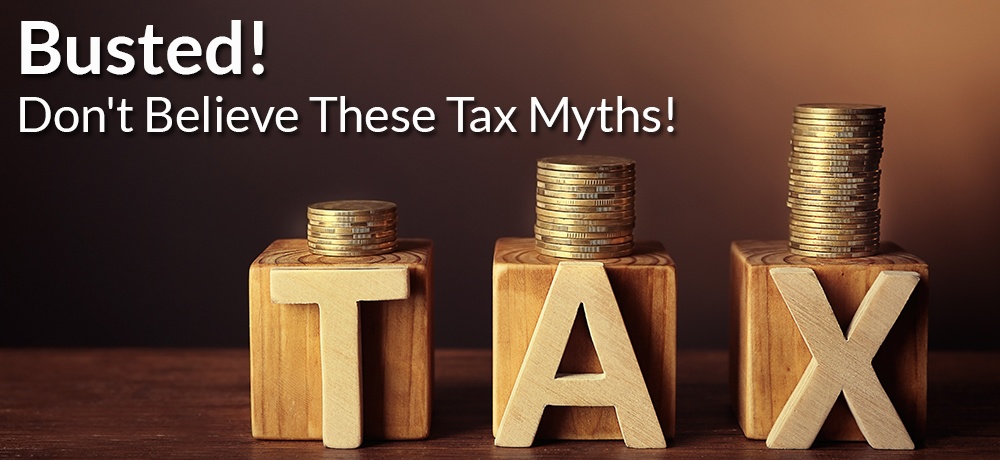Busted! Don't Believe These Tax Myths!

As a taxpayer, you want to obey responsibilities, keep a clean record, adhere to tax laws and make the right claims on your return. This way, if you or your business ever face an audit by the Canada Revenue Agency (CRA), you are well-prepared. The CRA strictly scrutinizes records every year, so having a chartered accountant to confirm the accuracy of your records will benefit you.
Professional accountants will represent you during a tax audit. They oversee all your business finances, prepare tax returns and ensure your reports comply with current legislation.
In case, you are pressed against time and decide to take on this responsibility by yourself; you may fall prey to the numerous tax myths and end up neglecting certain tax laws. This can lead to punitive interest and penalties.
To ensure that you steer clear of the misconceptions, Clark Robinson Chartered Professional Accountants has debunked three of the most widely believed tax myths.
Myth 1: Gift cards given to employees are not taxable.
Many business owners believe they can give their employees $500 gift cards each year on a tax-free basis. While it is true that employers can provide each of their employees with gifts and awards that don’t exceed $500 in value per annum, it is not true that the gifts and awards can be gift cards and still be non-taxable to the employees. CRA takes the position that gift cards are considered near-cash and any cash or near-cash gifts and awards would be taxable to the employee. Gifts and awards given to employees must be non-cash gifts for the transaction to be tax-free. Consider providing tangible items such as artwork or giftware.
Myth 2: Tips do not get taxed.
Some employees in the hospitality or service industry don’t feel that their tips are taxable because they are not reported on their T4 slip. Tips that are paid directly from the customer to the employee are known as direct tips and must be tracked by the employee and reported on his or her personal income tax return. Tips that are collected by the employer and disbursed to employees are known as controlled tips and should be reported on the employees’ T4 slips and have source deductions withheld. Failure to report tips as income could result in punitive penalties and interest charges from the CRA.
Myth 3: Reporting the sale of a principal residence is not needed.
This is a relatively new myth, but some individuals don’t feel they need to report the sale of their principal residence because it is not taxable. While it is true that any gains earned from the sale of a principal residence are tax-free(some exceptions apply), the transaction must still be reported or else penalties will apply. For 2016 personal income tax returns and later, necessary information such as the date of acquisition, proceeds of disposition and description of the property must be reported. Non-compliance will result in a $100 per month late-filing penalty and can go up to $8,000. Further, failing to report the sale of your principal residence could render the sale taxable.
To avoid falling for these myths and work with a chartered professional accounting firm in Vernon, BC, reach out to Clark Robinson Chartered Professional Accountants. We provide personal, corporate, estate and trust accounting, and tax services. We ensure clients make the most of the current tax laws and help them plan for future tax situations.
For a complete list of our services, please click here. If you have any questions about accounting and taxation, we’d love to hear from you. To get in touch, please contact us here.